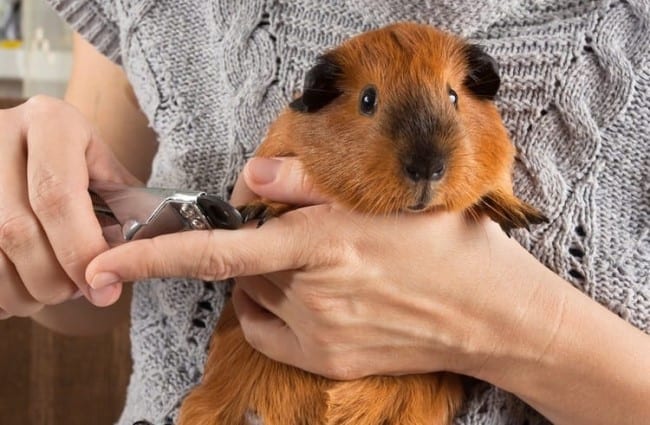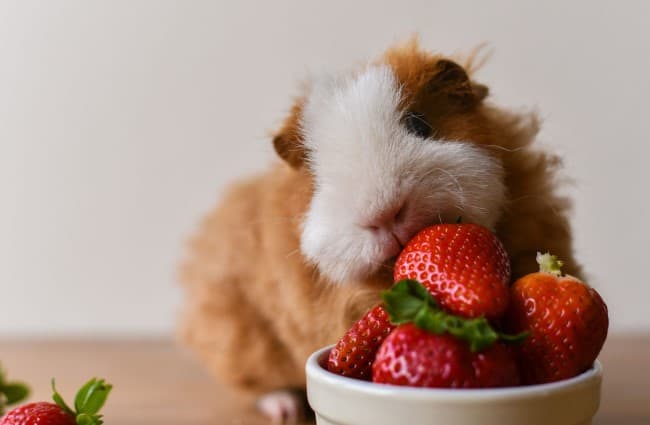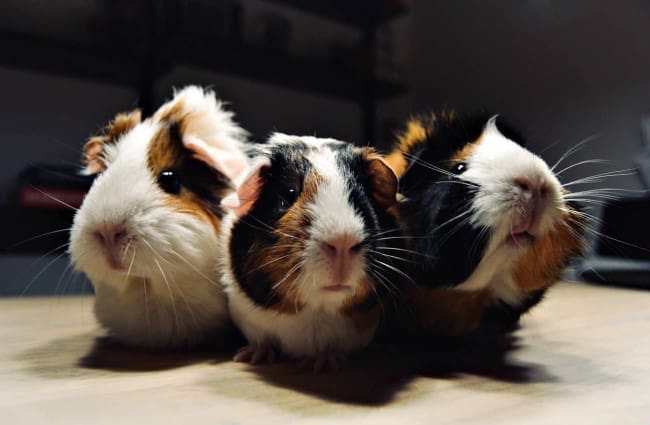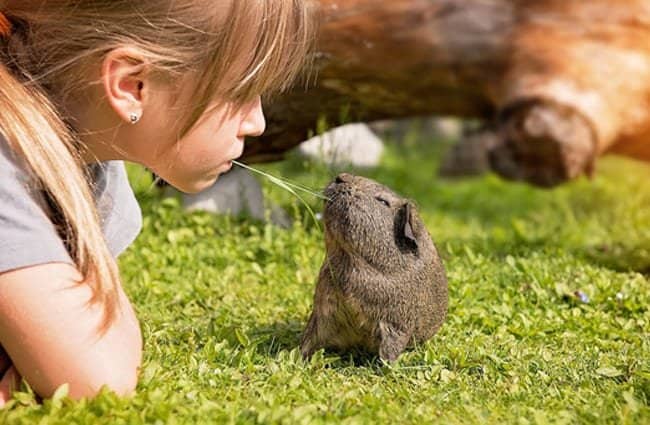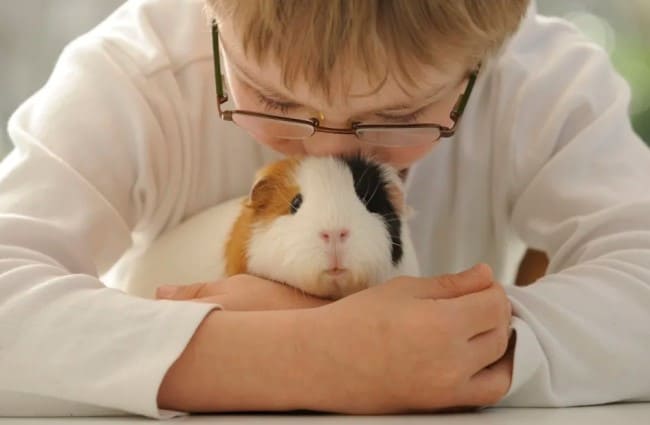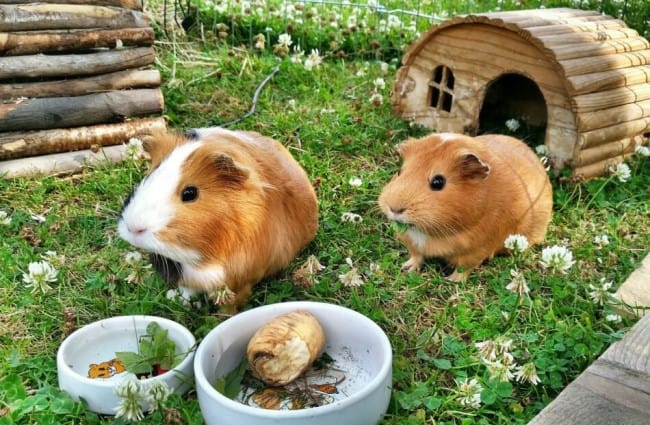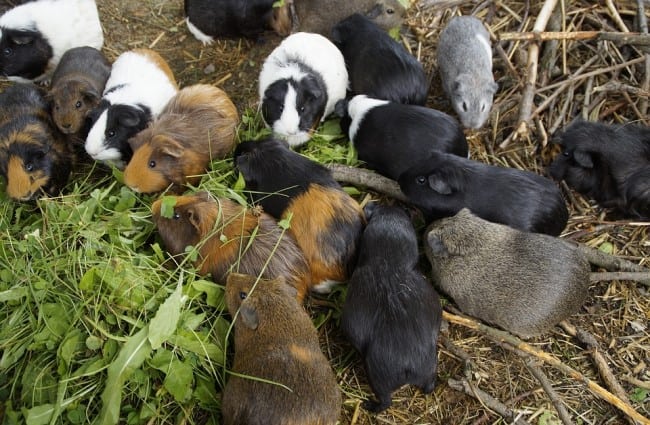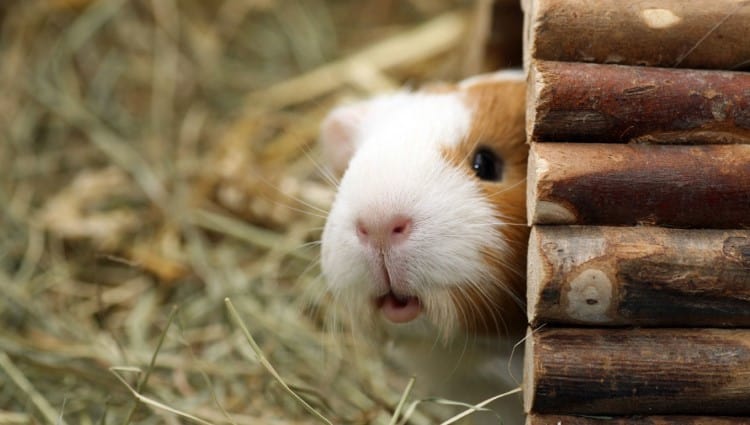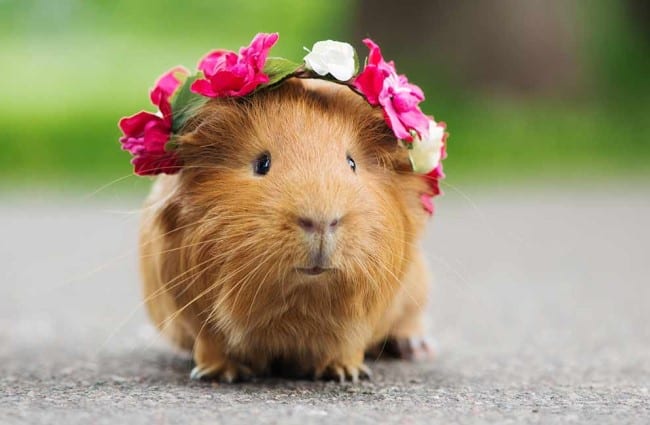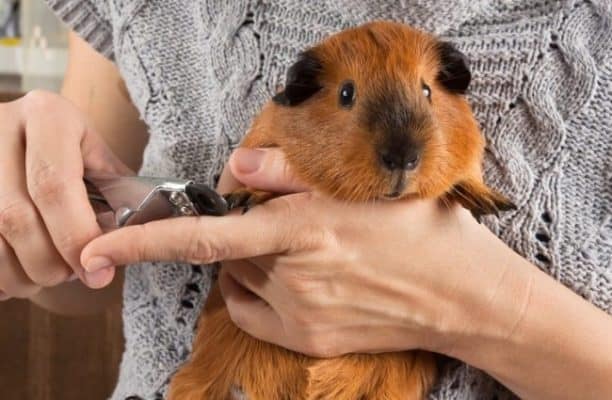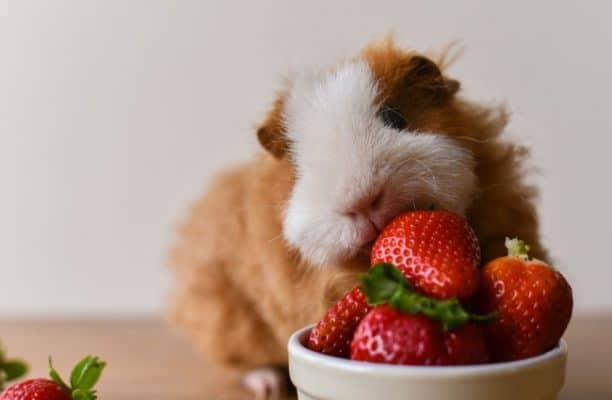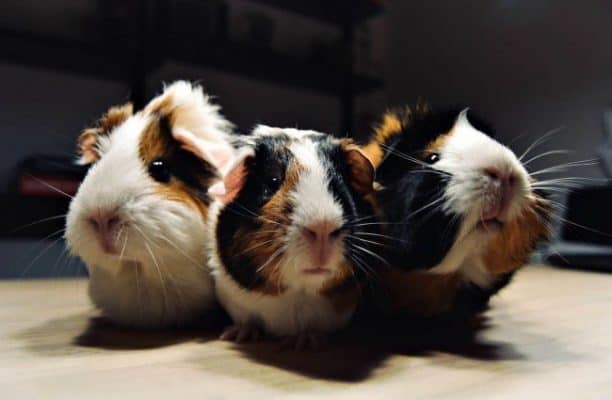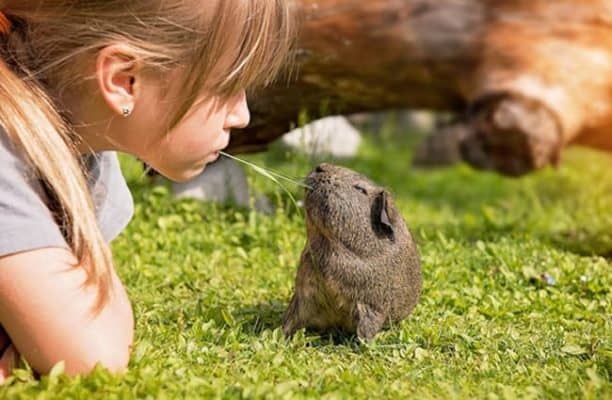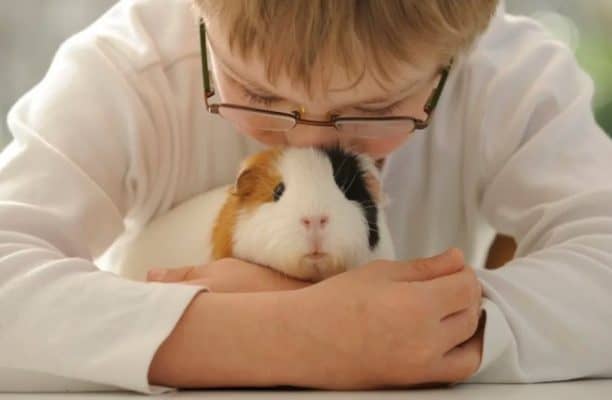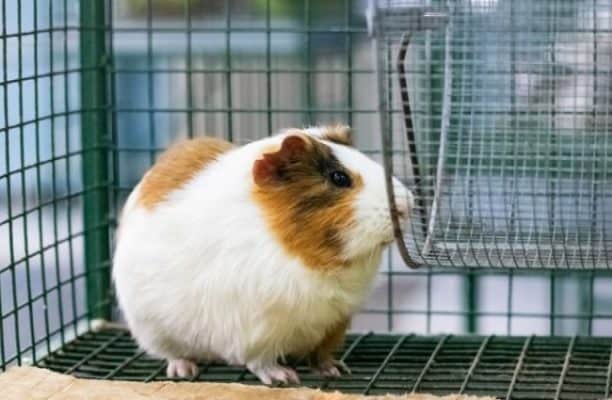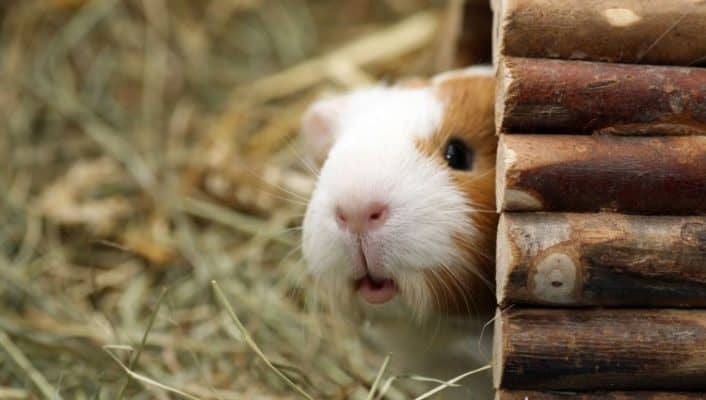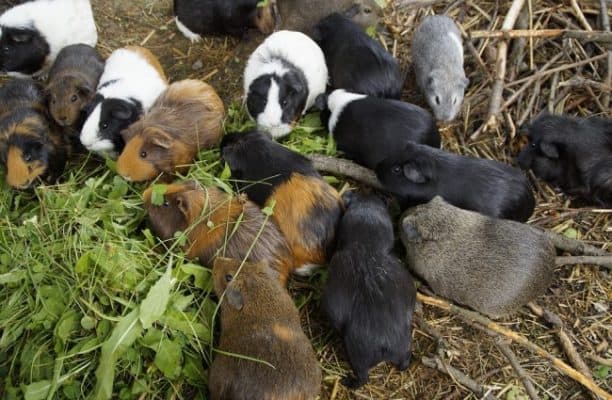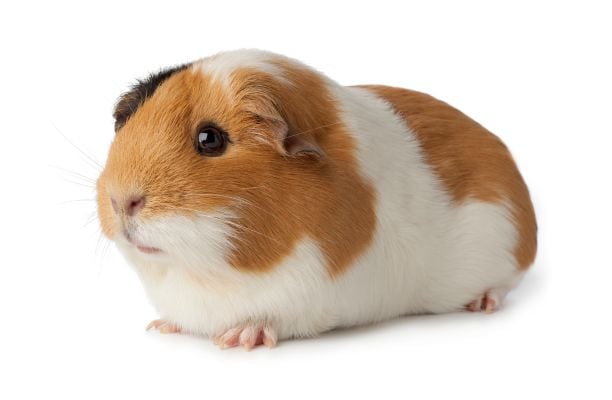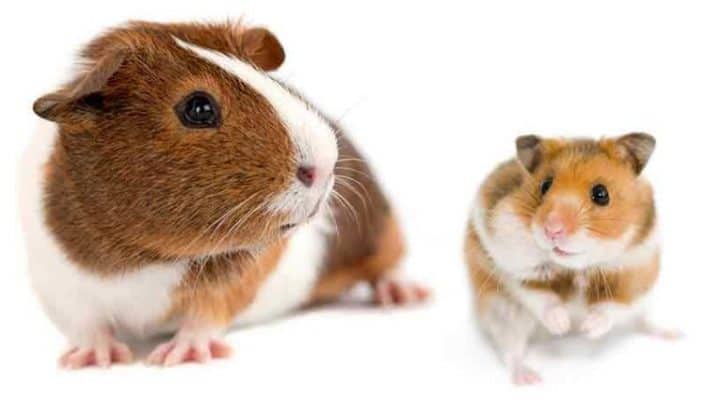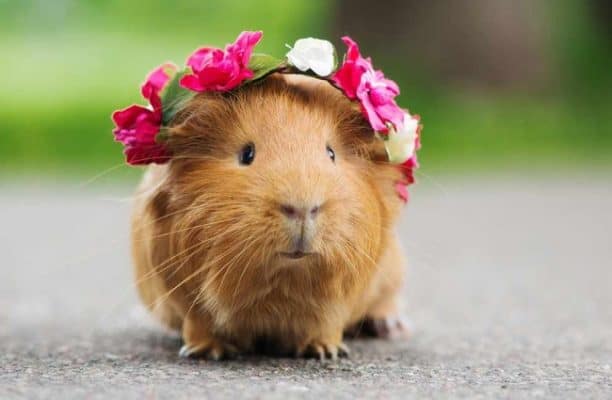Guinea pigs are social animals. It is recommended to always have two or more living together.
This allows them to interact with one another and prevents them from getting lonely and sad.
An important (yet not so exciting) part of caring for your guinea pigs is keeping their enclosure clean.
It is best to do small spot-cleans daily and then a big clean out once a week or whenever the hutch gets too dirty.
If your hutch has a metal tray on the base, it is important to keep it dry to prevent rusting.
We recommend lining the tray with a layer of newspaper then a thick layer of absorbent material on top (wood shavings, shredded paper, etc.).
When it’s time to clean out, simply roll up the newspaper with the bedding material inside!
If you are traveling in the car with your guinea pig, whether it be a quick trip to the vet or a long drive on holiday with your family, it is your responsibility to keep it safe and comfortable. Invest in a proper carrier cage and line the base with a towel or cushion.
Consider the temperature inside the cage and don’t leave it sitting in direct sunlight.
If you are going on holiday but unable to take your guinea pig with you, hire an experienced pet sitter. Leave written instructions and emergency contact numbers, just in case.
If the worst happens and your guinea pig gets lost, check all around your house and yard. Guinea pigs are small and can hide in tiny, unsuspecting places.
Leave their cage open in case they come home while you are searching. Ask neighbours and place ‘missing pet’ signs around your neighbourhood.
See our full Guinea Pig Caring Guide info page here.



